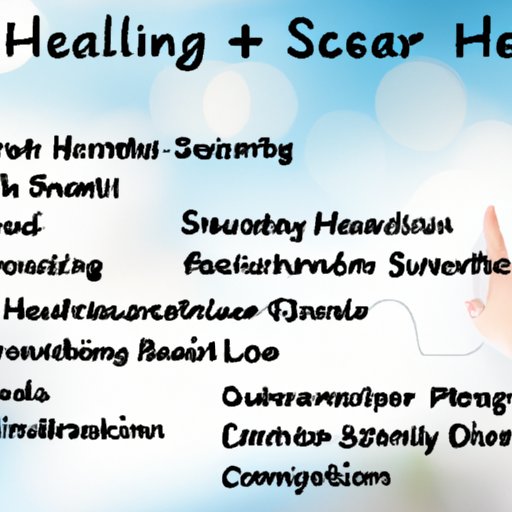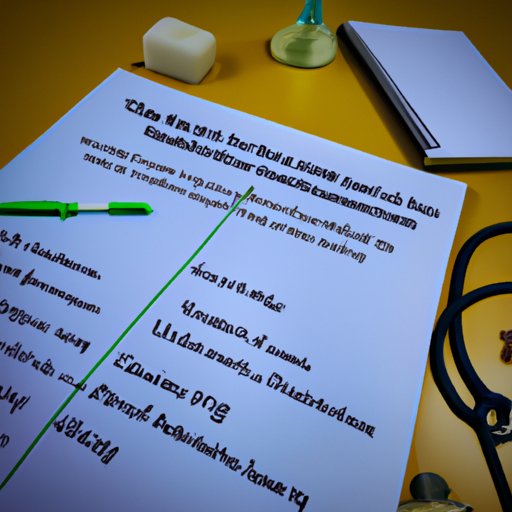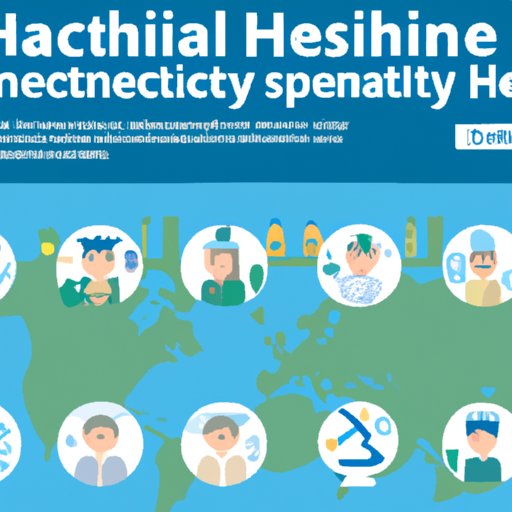Introduction
Health science is an interdisciplinary field of study that focuses on understanding and improving the health of individuals, families, and communities. It combines aspects of biology, psychology, sociology, and other sciences to provide a comprehensive approach to understanding and promoting health. Health science courses are designed to provide students with the skills and knowledge necessary to pursue a variety of career paths in the health sciences field.

An Overview of What to Expect from a Health Science Course
Health science courses vary in length and content, but they all cover the same basic principles and theories. Depending on the type of health science course, topics may include anatomy, physiology, pharmacology, nutrition, epidemiology, medical ethics, public health, and health policy. Most courses also include laboratory work, field trips, and/or clinical experiences.

What You Can Learn from a Health Science Course
By taking a health science course, students gain an understanding of the scientific principles and theories that underpin the field of health science. They also learn about the various diseases and conditions that affect human health, and the methods used to diagnose and treat them. In addition, students develop the skills and knowledge necessary to pursue a variety of career paths in the health sciences field, such as becoming a physician, nurse, physical therapist, or health educator.

The Different Types of Health Science Courses Available
There are several different types of health science courses available. These include:
- Biological Sciences: These courses focus on how living organisms interact with their environment. Topics may include genetics, cell biology, microbiology, biochemistry, and ecology.
- Clinical Sciences: These courses focus on the diagnosis and treatment of diseases and conditions. Topics may include pathology, pharmacology, medical ethics, and patient care.
- Public Health: These courses focus on the prevention and control of diseases and conditions within populations. Topics may include epidemiology, biostatistics, health promotion, and health communication.
- Health Policy and Management: These courses focus on the management and administration of healthcare systems. Topics may include health economics, health law, health services research, and health systems organization.
- Environmental Health: These courses focus on the impact of environmental factors on human health. Topics may include environmental toxicology, air pollution, water pollution, and occupational health.
- Epidemiology: These courses focus on the study of diseases and conditions in populations. Topics may include descriptive epidemiology, biostatistics, and epidemiologic methods.
What Career Opportunities Are Available After Completing a Health Science Course?
Completing a health science course can open up a wide range of career opportunities. Typical job roles in the health sciences field include physician, nurse, physical therapist, health educator, and epidemiologist. Salaries for health science professionals vary depending on experience and qualifications, but most earn a competitive salary. There is also potential for further study after completing a health science course, with many graduates going on to pursue postgraduate qualifications.
How to Choose the Right Health Science Course for You
Choosing the right health science course for you is an important decision, and there are several factors to consider. Firstly, it’s important to identify your own interests and goals, and to research the different types of courses available. You should also consider entry requirements and consult with an academic advisor before making a final decision.
Conclusion
In conclusion, a health science course provides students with the skills and knowledge needed to pursue a variety of career paths in the health sciences field. The different types of courses available include biological sciences, clinical sciences, public health, health policy and management, environmental health, and epidemiology. Students who complete a health science course can expect to gain valuable skills and knowledge, and to have access to a range of career opportunities. Choosing the right health science course for you requires careful consideration of your own interests and goals, and thorough research into the courses available.
(Note: Is this article not meeting your expectations? Do you have knowledge or insights to share? Unlock new opportunities and expand your reach by joining our authors team. Click Registration to join us and share your expertise with our readers.)
